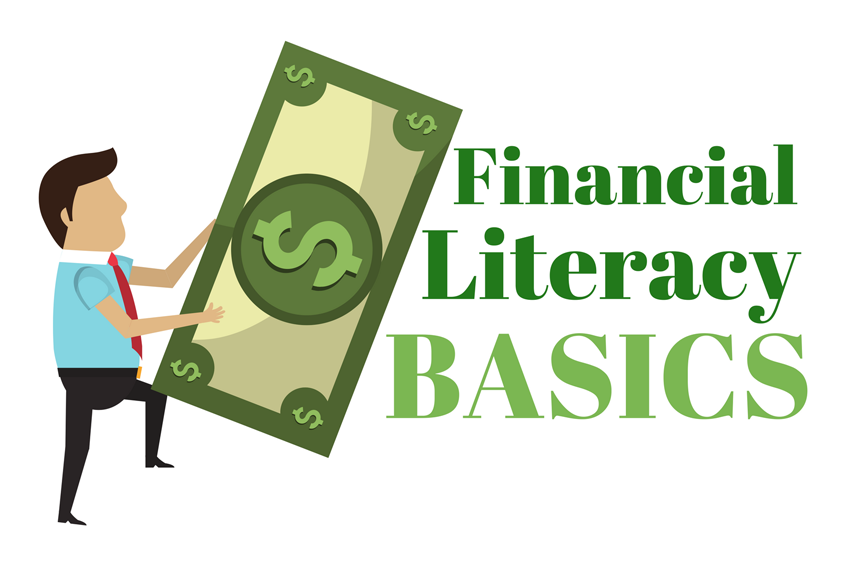
As we grow up in this world, the basic amenities such as medical facilities, education etc are bound to get expensive and hard to afford. In order to cope up with the fluctuations and to satisfy the necessities, since our childhood, we’re forced to study well so we can go to college and get a well-paid job. The job will ensure that you’re paid timely and you have the cash to carry on with day-to-day life. What is missed between all these life-altering suggestions is the need to be financially literate. You don’t need a degree to be financially literate. This is something that hasn’t been taught to us in schools or college. Here is the list of things we now wished should be taught at schools:
- How to sell?
- How to think?
- How to negotiate?
- How to face failures?
- How to manage money?
- How to invest money?
- Principles of success?
- How to find your passion?
- How to handle money?
- How to make an impact?
- How to start a business?
- The importance of travelling
- Importance of good communication
- Emotional awareness and intelligence
- How to read financial statements?
- How to do your taxes?
So, what does financial literacy actually means? Why do we need it? And what is its importance?
Let’s start off with the definition. Financial literacy is the understanding and education of knowing how money is saved, spent and made. It is also the ability and skills to use financial resources to make any financial decision. All these decisions include how to save, spend, invest and most importantly, generate money. In simpler terms, it is the knowledge of how money works and how it can work for you.
Here’s an example to make you understand this in a better way. A bloke named Ram works for an MNC and after a month’s hard work, he gets Rs. 20,000 in his bank account after all other mandatory deductions. He is a bachelor and lives as a paying guest. The monthly expenditure includes Rs. 6,000 as room rent, Rs. 2000 as gym subscription, Rs. 4,000 in bills and utilities, Rs. 5,000 in groceries and drinks and the remaining Rs. 3,000 to buy luxurious items including branded clothing. This tells us that by the end of the month, Ram is left with no savings for any unforeseen liability. In the short term, the expenditure habit may seem justifiable to Ram as he is able to meet all his expenses. However, in the long term, he has no savings and it is totally inappropriate. Going by the short term, Ram shall never have the options to spend more than he actually does until and unless he switches is a job to a higher paying one. If Ram decides to learn how to manage his money wisely, he will be able to actually buy things that he needs and will be able to save for the future. Although, Ram might be aware how to budget, even then he can’t be adjudged as being financially literate. By understanding various other financial concepts, he should be able to make other financial decision such as decision regarding real estate, education loan, retirement, insurance and other investments.
The term financial literacy is applicable to both individuals and organizations. As an individual must be able to understand personal taxes, balance chequebook, and knowledge of budgeting in order to make a decision related to money wisely. Acquiring these set of skills is very crucial as most of us lack this knowledge and face challenges in meeting their expenses. On the other hand, the organizations must have wise management who comprehends financial statements, production costs, variable costs, production schedules and other reports to ensure business decisions made does not affect the organization negatively.
Now coming to the importance of financial literacy. The importance is strategically explained to the college-goers by Paul Goebel, Director, Student Money Management Centre at the University of North Texas. As per Paul, “For college students, financial literacy is important because the formula for college success today only has two factors: grades and money. Professors and instructors thoroughly educate students on academic requirements and grading policies. It’s often new financial responsibilities and realities that campuses are not adequately educating or preparing students for success. Research has even shown that students are more likely to drop out of school because of “outside pressures” than poor grades. Student success is no longer constrained to classrooms or defined by academic performance alone. The future success of our students relies on providing opportunities for them to learn, develop, and strengthen core life skills they need today and more importantly tomorrow as successful graduates”.
Financial literacy is vital as it readies us the skills & knowledge that is fundamentally required to manage money. Without it, the financial decisions that we take might not result is what we expected and the success may not be maximised. To help you understand and decide if you’re financially literate, try answering the below questions honestly:
- Do you regularly create a monthly budget that includes all your expenses?
- Currently, are you debt free? What are the action steps you’re taking to reduce debts?
- Do you have any emergency fund saved that can be used in situations like medical emergency etc?
- Do you understand what is mutual fund and how you can earn through it?
- Do you understand how compounded money invested grows in the long term?
- What is the difference between insurance and investment?
Kudos to you if you were able to positively answer the answer all or some of the above questions. In case, your answer is no, you shouldn’t be disheartened. It is always a good time to learn. There are some steps that you can follow in order to understand how money actually works:
- If you’re in debt, try getting out immediately.
- Out of all the total income earned, you should save 15% for retirement. Suppose, Ram is presently 30 years old and still earning Rs. 20,000. If he saves 15% of his income for the next 30 years till he retires, he would have approx. Rs. 10,80,000 (15% of Rs. 20,000 = Rs. 3,000 X 12 months X 30 years = Rs. 10,80,000) in his bank account. Just an easy step to adhere to secure your retirement.
- Try paying off your mortgage as soon as possible. This will help you to save on paying any further interests.
- Read books. Educate yourself. Reduce unnecessary expenses. Follow the need and want rule. Save to invest.
By now you must have got an idea as to where you stand in terms of being financially literate. There is still a lot to learn and implement. You will be amazed to know how being financially literate can transform your life, family, career, communities and nation. To conclude, here our favourites financial quotes that may inspire you:
- If you aren’t thinking about owning a stock for 10 years, don’t even think about owning it for 10 minutes.
- If you aren’t thinking about owning a stock for 10 years, don’t even think about owning it for 10 minutes.
- Buy a stock the way you would buy a house. Understand and like it such that you’d be content to own it in the absence of any market.
- It’s better to hang out with people better than you. Pick out associates whose behaviour is better than yours and you’ll drift in that direction.
- It takes 20 years to build a reputation and five minutes to ruin it. If you think about that, you’ll do things differently.
- You only have to do very few things right in your life so long as you don’t do too many things wrong.

